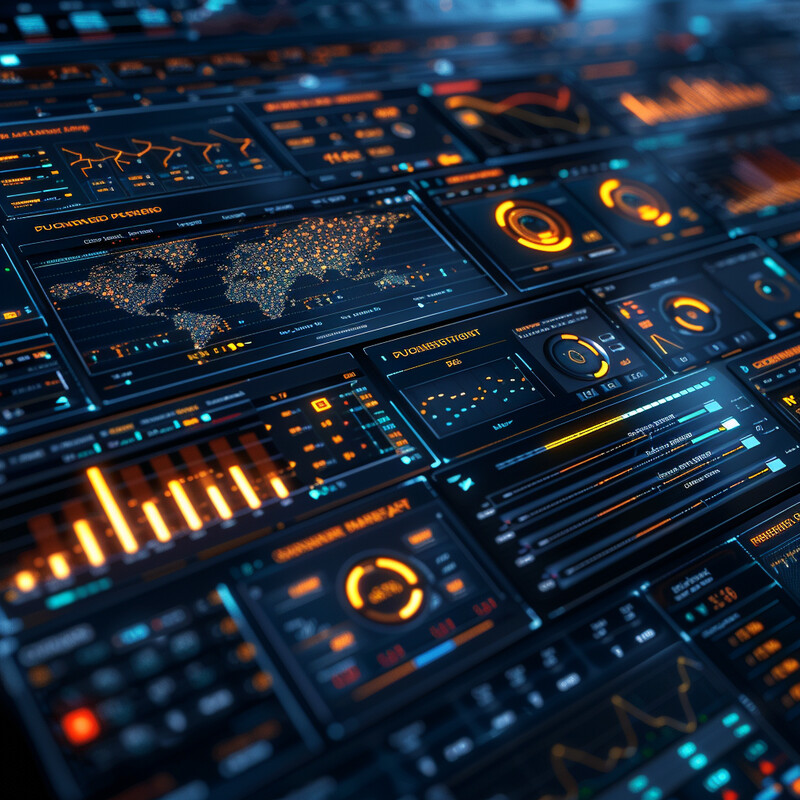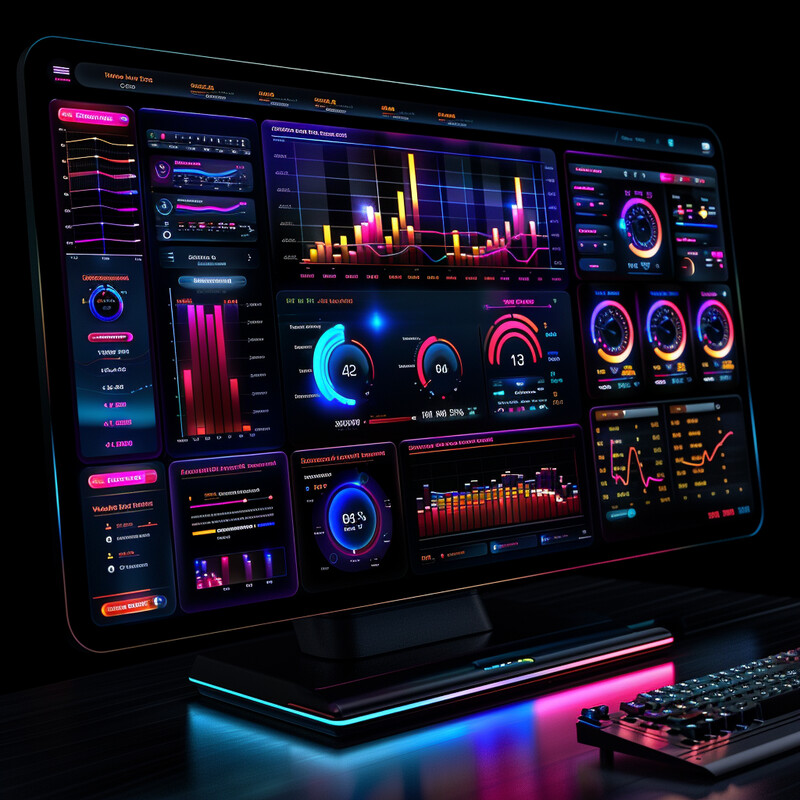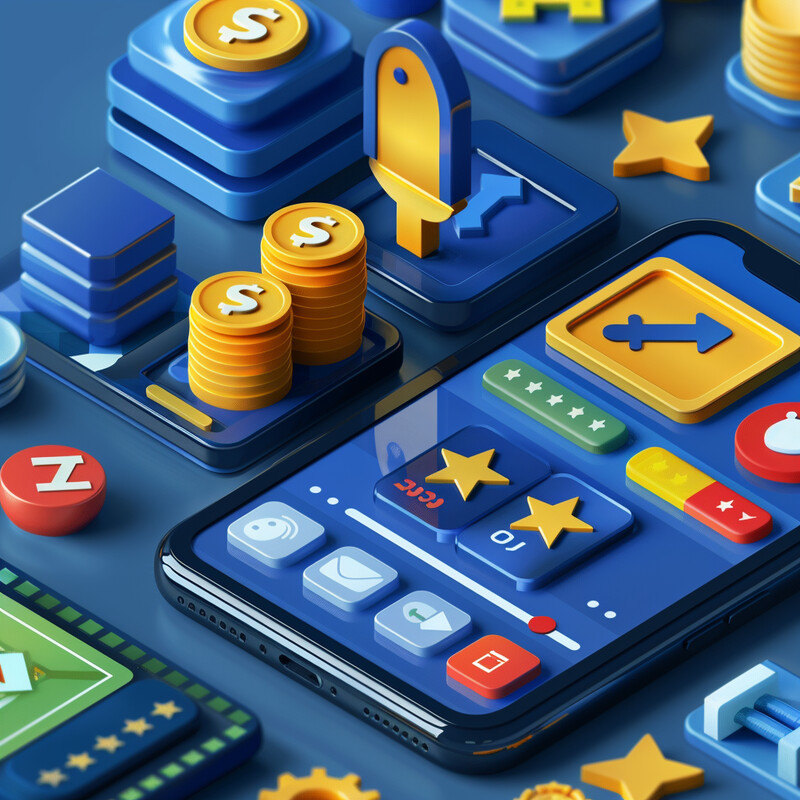1. Personalized Rewards and Offers
AI analyzes individual customer data such as purchase history, browsing behavior, and preferences to create personalized rewards and offers. By tailoring incentives to each customer’s interests, companies make loyalty programs more relevant and engaging. This customized approach increases the likelihood that customers will redeem offers and remain active in the program. It also improves customer satisfaction, as members feel the brand understands their needs. Overall, AI-driven personalization deepens customer loyalty by delivering the right reward to the right person at the right time.

One prominent example is Starbucks, which uses an AI platform called “Deep Brew” to personalize incentives for specific customer segments. After implementing AI-driven targeted offers, Starbucks reported its U.S. loyalty membership reached a record 34.3 million active members in Q1 2024 – a 13% increase year-over-year. The company attributes part of this growth to AI’s ability to identify customer cohorts and send relevant, individualized promotions, illustrating how personalization can boost engagement and repeat business in loyalty programs.
2. Predictive Analytics for Customer Behavior
AI’s predictive analytics capabilities enable companies to forecast future customer behavior and needs based on historical data. By examining patterns in how customers have interacted with a brand – their past purchases, frequency of visits, and even responses to previous offers – machine learning models can predict what customers are likely to do next. Businesses use these predictions to proactively tailor loyalty program incentives, such as offering a promotion just before a customer is likely to lapse or suggesting products they are likely to buy next. Anticipating customer behavior helps brands stay one step ahead, increasing retention and spend by meeting needs before the customer even articulates them.

AI-driven predictive models have shown tangible benefits in loyalty programs. For example, an Australian sports club used an AI tool to predict which loyalty members were at risk of churning, allowing targeted retention offers. As a result, the club achieved a 25% growth in membership over a six-month period in 2023 after implementing the AI-driven churn predictions. This case demonstrates how predictive analytics can directly translate into higher loyalty program participation and growth by identifying and addressing customer drop-off before it happens.
3. Segmentation for Targeted Campaigns
AI improves customer segmentation by processing vast datasets to group customers into precise segments based on behaviors and attributes. Instead of broad demographic groupings alone, AI clustering might reveal niche segments (e.g., “weekday coffee enthusiasts” or “online bargain hunters”) that manual analysis could miss. With these detailed segments, companies can run targeted loyalty campaigns—such as a special reward for high-frequency buyers or reactivation incentives for lapsed users—that resonate much more with the audience. This targeted approach ensures marketing efforts and rewards are relevant to each group, leading to higher engagement and conversion rates. Ultimately, AI-driven segmentation makes loyalty campaigns more efficient and effective, as each customer segment receives offers that match their specific interests and habits.

Research shows that leveraging AI for customer segmentation can significantly boost campaign performance. In fact, marketing studies indicate that AI-powered audience segmentation can improve conversion rates by up to 30% through more precise targeting. For instance, by analyzing customers’ purchase patterns and preferences, a retailer might find a segment of eco-conscious shoppers and send them tailored loyalty offers for sustainable products, yielding far better results than a one-size-fits-all promotion. This data-driven targeting leads to more efficient use of marketing spend and a higher return on investment for loyalty campaigns.
4. Enhanced Customer Interaction through Chatbots
AI-powered chatbots and virtual assistants are increasingly used in loyalty programs to enhance customer interaction and service. These chatbots can handle routine inquiries 24/7, such as checking reward balances, redeeming points, or answering program FAQs, giving loyalty program members instant support. By providing quick, accurate responses without human intervention, AI chatbots improve the customer experience – there’s no waiting on hold or limited service hours. Importantly, modern chatbots use natural language processing to understand customer questions and sentiment, allowing them to personalize the interaction (for example, suggesting how a customer can earn the last few points needed for a reward). The result is a more engaging, always-available touchpoint that keeps customers connected to the loyalty program and satisfied with the service.

Companies adopting AI chatbots have seen measurable improvements in customer satisfaction and efficiency. According to IBM, businesses that deploy AI “virtual agent” technology in customer service can reduce support costs by about 30% and achieve a 20% increase in customer satisfaction on average. This is because chatbots resolve issues faster and consistently. For loyalty programs, higher satisfaction translates to greater loyalty: customers who get prompt answers or easy help with rewards are more likely to remain engaged and continue using the program. This data aligns with industry surveys showing many consumers appreciate the 24/7 availability and quick responses AI chatbots provide.
5. Integration with Social Media for Engagement
AI helps integrate loyalty programs with social media, creating new ways to engage customers on platforms they already use daily. Through AI-driven social listening, brands can monitor social media for mentions or trends and respond in real time – for instance, spotting a customer’s tweet about a great product and instantly offering them loyalty points as a thank-you. AI can also analyze social data to identify influential customers or brand advocates and then reward them through the loyalty program (such as bonus points for referring friends via social media). Additionally, AI can personalize content on social channels by learning what posts or rewards a loyalty member might enjoy, thus driving more interaction. By blending social media engagement with loyalty incentives, companies keep their programs in customers’ sight and encourage a sense of community and advocacy around the brand.

An active and positive social media presence can significantly amplify customer loyalty. A recent consumer survey found that 71% of consumers who have had a positive experience with a brand on social media are likely to recommend that brand to friends and family, demonstrating how social engagement feeds loyalty. Brands leveraging AI to promptly engage with customers on social platforms – for example, by quickly addressing complaints or thanking customers for posts – help create those positive experiences. The result is not only improved public sentiment but also tangible loyalty growth, as personal recommendations and social proof drive new members to join and existing members to stay committed.
6. Real-time Feedback and Adjustments
AI enables loyalty programs to incorporate real-time feedback and make instant adjustments to offerings. This means the program can analyze incoming data from customers’ actions (purchases, redemptions, feedback forms, etc.) on the fly and modify rewards or messages accordingly. For example, if an AI system notices that a particular offer in a loyalty app isn’t getting any engagement, it can immediately swap in a different promotion that’s more appealing. Real-time analytics also allow dynamic personalization – a customer browsing products can receive a timely reward offer before they leave the app. By reacting in the moment to customer behavior and feedback, AI-driven loyalty programs remain agile and relevant. This immediacy keeps customers more engaged, as the program continuously adapts to provide value based on what’s happening right now rather than relying on outdated, static campaign plans.

Companies are increasingly investing in AI automation to achieve these real-time loyalty adjustments. According to a 2024 industry trends report, over 30% of brands are now leveraging automation in their loyalty programs to deliver personalized rewards and communications at scale, optimizing each interaction in real time. This shift to real-time responsiveness has paid off: about 70% of brands report increased customer engagement as a result of modernizing their loyalty initiatives (which includes using AI for timely adjustments). In practice, this could mean automatically sending a make-good reward if a customer has a negative experience or boosting point accrual rates on the fly during periods of low engagement – all actions that keep customers feeling valued and heard, thereby improving loyalty.
7. Fraud Detection in Loyalty Programs
AI plays a critical role in detecting and preventing fraud in loyalty programs, which has become a growing concern for many companies. Loyalty fraud can include activities like account takeovers (stealing someone’s points), creation of fake accounts to exploit promotions, or unauthorized mass redemption of rewards. Traditional rule-based systems might not catch new or subtle fraud patterns, but machine learning excels at spotting anomalies in huge datasets. AI models monitor transactional data and user behaviors in the loyalty program in real time, flagging anything that deviates from the norm – for example, a sudden large transfer of points or multiple accounts redeeming the same coupon code. By catching these red flags early, AI can trigger security measures (such as locking an account or requiring additional verification) before the fraud causes serious damage. This protects both the company’s assets and genuine customers’ hard-earned rewards, maintaining trust in the program.

The need for AI in loyalty fraud prevention is underscored by the scale of the problem. Industry estimates indicate that loyalty and rewards program fraud costs companies between $1 billion and $3 billion globally each year. With such high stakes, many travel and retail brands have turned to AI-driven systems to combat fraud. These systems have successfully identified and reduced incidents like hackers draining loyalty accounts – a type of fraud that had been on the rise with 75% of travel sector merchants reporting increased loyalty fraud attempts in a recent year. By using AI to continuously watch for suspicious patterns (such as a normally inactive account suddenly redeeming a large amount of points), companies can intervene sooner, significantly cutting financial losses and preserving customer loyalty.
8. Automated Reward Management
AI automates many aspects of reward management in loyalty programs, streamlining what used to be labor-intensive tasks. This includes automatically crediting points to customer accounts after purchases, triggering rewards or coupons when certain criteria are met, and even handling expiry and renewal of points. Automation ensures that no customer reward is overlooked or delayed due to human error – for instance, the system won’t forget to send a birthday reward or will instantly apply a discount once a member reaches a new tier. Additionally, AI-driven automation can manage complex reward rules (such as personalized discounts or partner offers) simultaneously for millions of members, something that would be impossible to do manually in real time. By handling the back-end efficiently, AI frees up loyalty program managers to focus on strategy and innovation. For customers, this seamless automation means they experience timely, accurate, and relevant rewards without hassle, which in turn enhances their loyalty.

Companies that have introduced AI and automation into loyalty management have seen notable improvements in customer retention and revenue. A recent case study described how a retailer implemented an “always-on” AI-driven rewards system that sends personalized perks based on predefined triggers – leading to a 20% increase in revenue from active loyalty program customers within 90 days, as well as a 15% increase in lapsed customers who were won back through automated re-engagement campaigns. These outcomes show how automating reward delivery and customer follow-ups (like automatically emailing incentives to customers who haven’t shopped in a while) can directly boost the bottom line. Moreover, automation cuts down on administrative costs and errors, making the loyalty program more cost-effective to run in the long term.
9. Gamification of Loyalty Programs
AI is enhancing gamification elements in loyalty programs, making them more engaging and fun for customers. Gamification refers to incorporating game-like features – such as points, levels, challenges, and badges – into the loyalty experience. AI can personalize these gamified experiences by analyzing what motivates each customer. For example, one customer might respond well to competitive leaderboards, while another prefers collaborative challenges; the AI can tailor the experience accordingly. Furthermore, AI can adjust game difficulty or rewards in real time to keep users interested (much like how video games adapt to player skill). By making the earning and redeeming of rewards feel like a game, customers are encouraged to interact more frequently and for longer with the loyalty program. This sustained engagement translates to higher loyalty, as customers form habitual and even emotional connections with the program in their quest to achieve the next reward or status.

Gamification has been proven to substantially boost customer engagement and loyalty metrics. A study by Snipp Interactive found that brands adding gamified elements to their loyalty programs experienced a 47% increase in customer engagement and a 22% increase in brand loyalty compared to before the gamification. For instance, after a retail chain introduced a tiered “challenge” system (where customers earn badges and extra points for completing purchasing challenges), they observed more frequent purchases and higher program participation rates. These improvements occur because game elements tap into customers’ natural desires for reward and competition. AI further amplifies this effect by keeping the game dynamics fresh and personalized, ensuring customers remain enthusiastic and loyal over time.
10. Lifetime Value Prediction
AI allows companies to predict the lifetime value of customers, which is a forecast of how much revenue a customer will generate over the entire span of their relationship with the brand. By analyzing patterns and attributes of customers (such as purchasing frequency, average spend, engagement in the loyalty program, etc.), machine learning models can estimate which customers are likely to be the most valuable in the long run. This insight enables brands to tailor their loyalty efforts—such as premium rewards, exclusive offers, or dedicated support—toward those high-LTV customers to maximize retention. It also helps identify customers who could become high-value with the right nurturing, informing targeted campaigns to increase their loyalty. In essence, AI-driven LTV prediction ensures that a company’s loyalty program investments are directed where they will have the greatest impact, fostering long-term loyalty and profitability by focusing on customers with the highest potential value.

Emphasizing lifetime value has become a strategic priority for many organizations, aided by AI analytics. In a 2024 survey, 60% of brands reported that they are now prioritizing customer lifetime value (CLV) as a key metric in their loyalty strategies. This shift is largely due to advanced predictive models that make CLV easier to calculate and act upon. Companies using AI to segment and reward customers based on predicted CLV have seen improvements such as higher retention of top-tier customers and more efficient marketing spend. For example, a subscription service used AI to predict which new subscribers had the highest potential LTV and offered them enhanced onboarding and perks, resulting in a 10% higher retention rate of those high-value customers compared to a control group. These outcomes underscore how lifetime value prediction, powered by AI, is helping brands build and maintain a more loyal, profitable customer base for the long term.